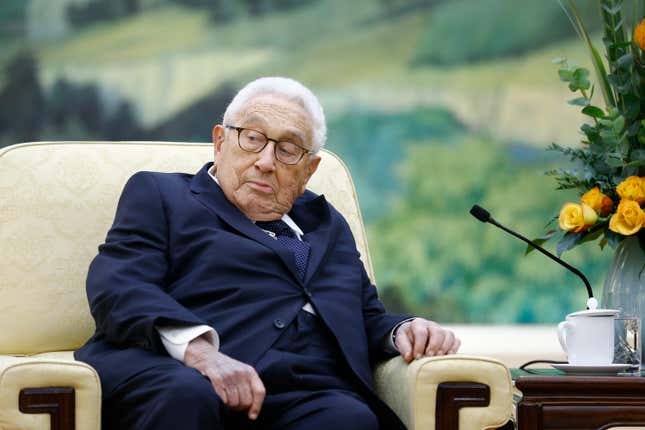
Every global-scale sporting event exists in a strange standoff with itself. On one side is the inevitable bloat and graft and soul-deep cynicism that animates every such event—the neighborhoods flattened or surveilled or otherwise punished for sitting where a stadium is supposed to be, the bribery and waste and stupid greed and the bold lying about all of it, the smug international institutions behind it all tootling proudly on their own horns about how meaningful and important it all is. On the other side are the sports themselves, which being sports are generally pretty-good-to-excellent and inevitably less cynical and infinitely more pleasant to think about than the plump ghouls that get rich off them. The challenge is for these games to somehow try to even the ledger—to be so inspiring an example of human grace and capacity as to cancel out all that opposing ugliness. Every World Cup or Olympic Games is, at some elemental level, an attempt to correct or redeem the circumstances in which it was created.
Or, if you would like a more economical expression of this feeling, try this headline, from Thursday’s Los Angeles Times:
Henry Kissinger: For a more peaceful vision of the future, look to the Olympics
The piece, which carries the 96-year-old Kissinger’s byline but has the peculiar fingerprint-free affectlessness unique to ghostwritten opinion pieces, is perfectly anodyne stuff from start to finish. Kissinger, who is identified as “an honour member of the International Olympic Committee,” notes that while the state of the world is generally bad—orderless and fraught and forever tipping toward some cataclysmic violence, for reasons he surely knows nothing about—the Olympics reminds us that other things, like unity and fellowship and various physical reifications of the more inspiring elements of human possibility, are broadly good. “In the peaceful competition of the Olympics,” writes Kissinger or someone who works for him, “the achievement of one nation encourages the efforts of others, spurring all to new heights in human excellence.”
Even under the byline of a man responsible for the deaths of hundreds of thousands of people worldwide, that sentiment seems true enough. It’s also kind of a non sequitur, but it fits within the broader tradition of Things Prominent Public Cynics Say About Things Like The Olympics. While it’s a stretch to say that global-scale sporting events can even temporarily fix anything that’s broken in the world, that seems to have become the case that people with titles like Honour Member Of The International Olympic Committee feel compelled to make for events like these; given the towering scale of micro and macro-scale fuckery involved in such undertakings, only something like Promoting Understanding or Ending War could justify the volume of greasy waste involved in making these games happen. There is something preposterous and offensive, just in a basic sense, about both that case and the people making it, to the point where the people that make it most often in public come to look uncanny, or even unreal—so plummy and powdered and smug that they look somehow like cartoons of themselves. Henry Kissinger, who is now very old and looked like some kind of deeply malevolent dumpling even in his youth, is one of those people and has been for many years.
“I have now lived through 46 Olympic Games,” Kissinger or someone who works for him writes, “many of which I have had the privilege of attending in person. I have shared the pleasure with my children and grandchildren. Each iteration of the Games over the years has had its own significance, informed by the challenges and the triumphs of the contemporary moment.” That’s a lot of Olympic games, but then Kissinger has been alive for a long time. Long enough to have befouled and bloodied generations worth of “contemporary moments,” certainly. Long enough, too, that his continued existence feels almost like a kind of taunt—the man behind some of the most cynically conceived and brutally executed wars in human history, who instrumentalized and pursued power in the most transparently self-serving ways and at staggering human cost, has somehow stuck around long enough to be allowed to tell stories about unity and peace.
“In my view,” he concludes, “the Games present a lens in which to look beyond this moment in history and focus on building bonds that enhance mutual understanding, promote peace, and drive our shared pursuit of the many forms of human greatness.” Kissinger has lied for his whole public life, but again he might be telling the truth, there. Sports and what they can teach and illuminate really are good, and important; they really do remind us of some of the better things about being human, and being human together. It’s just hard to credit any of this when it comes from someone who has done so much to obscure or obliterate every virtue he purports to celebrate, and who has inflicted so many of the wounds that he claims these games might help to knit up. Kissinger or whoever is writing on his behalf isn’t wrong on all that human possibility stuff. It’s just that he’s much more convincing as a reminder of who and what all those finer things are up against here on earth.